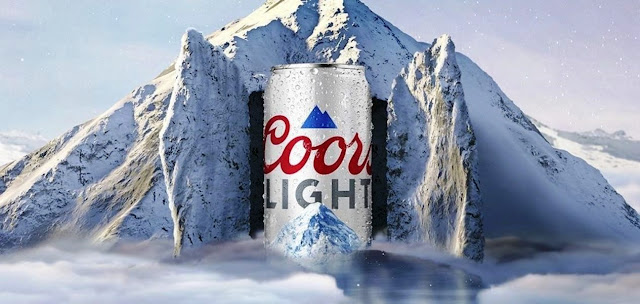Nearly 40 dream researchers published an op-ed letter warning the public of companies taking over their dreams with commercials ! .. .. can you make out or understand what this is about ! ~ I am clueless !!!
Every night as I hit the bed, my eyes close and I fall asleep – and they start ! – almost unending .. .. when I get up whether in between in the dead of night or early morning, I can almost recall the story that was running ! … .. ‘dreams’ ! .. .. Dreams can be entertaining, disturbing, or downright bizarre. We all dream, even if we don't remember it the next day.
Dreams are the stories the brain tells during the REM (rapid eye movement) stage of sleep. People typically have multiple dreams each night that grow longer as sleep draws to a close. Over a lifetime, a person may dream for five or six full years. How best to examine all that content remains a source of debate. Almost by definition, a dream is something you are aware of at some level. It may be fragmentary, disconnected, and illogical, but if you aren’t aware of it during sleep then it isn’t a dream. Many people will protest, “I never remember my dreams!,” but that is a different matter entirely. Failing to remember a dream later on when you’re awake doesn’t mean you weren’t aware of it when it occurred. It just means the experience was never really carved into your memory, has decayed in storage, or isn’t accessible for easy call back.
A few years back – in the dead of night, an ambulance arrived at Devaki hospital – a man with cuts and bleeding injuries all over the body was admitted – was informed that he was injured badly while performing a stunt sequence. Those around him were discussing of whether or not to inform his young wife of the accident and .. .. how to arrange money for the immediate treatment ! – sad tale of a junior artiste, part of the ‘dream industry’ where heroes utter punch dialog and rake in crores (yet do not pay taxes !) – that even after earning so many crores, they too turn pauper is not the subject matter of this post.
Tamil Nadu has high no. of literates – yet ‘dream factory’ has dominated them in every sphere. A small time hero having acted in couple of films starts nurturing hopes and vision of becoming a political leader and in felicitations, his fans might shout ‘future CM’. Actors by and large have enjoyed larger than life image and cult status. While a popular actor can travel by a train or walk on the streets in Kerala, such a thing cannot happen for a small hero too – that is the fan following.

It is but natural that people flock to cities – a city life, however miserable could be is the dream choice as millions of village youths [both men and women] chase their pipedream – once it was believed that daily - at least 50 girls land up at Egmore Railway station from small villages down south, aspiring to get a role in the silver screen, thinking it to be the gateway to prosperity. This is no post on ‘dream factory’ also.
Molson Coors recently announced a new kind of advertising campaign. Timed for the days before Super Bowl Sunday, it was designed to infiltrate our dreams. They planned to use "targeted dream incubation" (TDI) to alter the dreams of the nearly 100 million Super Bowl viewers the night before the game—specifically, to have them dream about Coors beer in a clean, refreshing, mountain environment—and presumably then drink their beer while watching the Super Bowl. Participants in what Coors called ‘the world’s largest dream study’ would get half off on a 12 pack of Coors; if they sent the link to a friend who also incubated their dreams, the 12 pack was free. With this campaign, Coors is proudly pioneering a new form of intrusive marketing. “Targeted Dream Incubation (TDI) is a never-before-seen form of advertising,” says Marcelo Pascoa, Vice President of Marketing at Molson Coors.
With brain imaging techniques beginning to capture the core contents of people’s dreams and sleep studies establishing real-time communication between researchers and sleeping dreamers, the kind of dream incubation until recently assumed to be the pure science fiction of movies like Inception is now becoming reality. Coors is not the only company expressing interest in using these novel dream incubation technologies: Xbox's Made From Dreams uses TDI to give professional gamers dreams of their favorite video games, while Playstation advertises a new Tetris game based on a sleep study demonstrating that gameplay incubates Tetris dreams. In 2018, Burger King created a "nightmare" burger for Halloween, claiming that a sleep laboratory study had ‘clinically proven’ it would induce nightmares!!
Traditions of dream incubation—techniques employed during wakefulness to help a person dream about a specific topic—go back thousands of years and span indigenous practices across the globe. Over the last few years, brain scientists have begun to develop scientific tools that facilitate this incubation of specific dream content, making dream incubation more targeted and measurable, and allowing scientific experimentation on the nature and function of dreaming. They use sensors to determine when an individual’s sleeping brain is receptive to external stimuli and, at these times, introduce smells, sounds, flashing lights or even speech to influence the content of our dreams.
For now, TDI-based advertising requires our active participation, for example choosing to play an 8-hour Coors soundtrack while we sleep. But it is easy to envision a world in which smart speakers—40 million Americans currently have them in their bedrooms — become instruments of passive, unconscious overnight advertising, with or without our permission. These tailored soundtracks would become background scenery for our sleep, as the unending billboards that litter American highways have become for our waking life.

The concerns of the researchers are largely regarding Coors Light's experiment in January that aimed to show sports fans commercials while they slept after February's Super Bowl. They have written that 'Such interventions clearly influence the choices our sleeping and dreaming brain make in how to interpret the events from our day, and how to use memories of these events in planning our future, biasing the brain's decisions toward whatever information was presented during sleep,' reads the letter.
Our dreams cannot become just another playground for corporate advertisers. Regardless of Coors’ intent, their actions set the stage for a corporate assault of our very sense of who we are. And it is not difficult to imagine Coors' ad campaign negatively impacting abstinent alcoholics. Indeed, research has shown that abstinent drug users who report dreaming about their drug-use show higher levels of craving. TDI-advertising is not some fun gimmick, but a slippery slope with real consequences. Planting dreams in people’s minds for the purpose of selling products, not to mention addictive substances, raises important ethical questions. The moral line dividing companies selling relaxing rain soundtracks to help people sleep from those embedding targeted dreams to influence consumer behavior is admittedly unclear at the moment. While the Federal Trade Commission has indicated that subliminal ads during wake violate its statute requiring truth in advertising, there is no similar indication regarding exposure to advertisements during sleep.
As sleep and dream researchers, we are deeply concerned about marketing plans aimed at generating profits at the cost of interfering with our natural nocturnal memory processing. Brain science helped design several addictive technologies, from cell phones to social media, that now shape much of our waking lives; we do not want to see the same happen to our sleep. We believe that proactive action and new protective policies are urgently needed to keep advertisers from manipulating one of the last refuges of our already beleaguered conscious and unconscious minds: Our dreams.
This technology, called targeted dream incubation (TDI), uses specific audio and visual stimuli, such as a movie, to induce specific imagery and sounds into the brain that people then see in their dreams. 'Our dreams cannot become just another playground for corporate advertisers,' the letter reads, urging the U.S. Federal Trade Commission to revisit its policies banning subliminal advertising to include ads that creep up in your sleep, too.
'The potential for misuse of these technologies is as ominous as it is obvious,' they shared in the letter. 'TDI-advertising is not some fun gimmick, but a slippery slope with real consequences. Planting dreams in people's minds for the purpose of selling products, not to mention addictive substances, raises important ethical questions.'
.. .. .. so in future, even your dreams could be guided and manipulated by some others with commercial interests ! does not sound music to ears.
With regards – S. Sampathkumar
19th June 2021.

